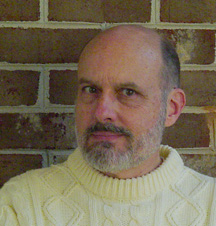conducted by Toni Weisskopf
February 2005

TW: How did you get started writing? Any specific influences?
SW: In the 1980s I wrote a number of pieces set in the Starfire game universe for a now-defunct magazine that was a house organ for Task Force Games. David Weber was doing the same thing, which was how we met. When the magazine folded, we were left high and dry with a number of story ideas, which looked suspiciously like chapters of a novel. This was the origin ofInsurrection, the first novel for both of us. The rest, as they say, is history. As for influences as a writer, I imagine Robert Heinlein and Poul Anderson were the strongest ones. But, as Poul himself once told me, the authors we like to read aren't necessarily the ones who influence our writing style. For example, I love reading Jack Vance, but his style is too unique to serve as a model.TW: What are some of the best perks of being a science fiction writer?
SW: The interesting and talented people one gets to meet. Besides, the research gives me a good excuse for doing a lot of the kind of reading I'd be doing anyway.TW: Do you have any favorites among your characters?
SW: Bob Devaney, in The Prometheus Project, is my first attempt at using a character as first-person narrator, and it's naturally easiest to put some of oneself into a character like that. I also have a soft spot in my heart for Ian Trevayne of Insurrection, my first protagonist.TW: What was the first sf story you ever read?
SW: The Mysterious Planet, by Lester Del Rey. But the one that really got me started on my road to ruin was Methuselah's Children, by Robert Heinlein. It simply blew me away with that much-discussed "sense of wonder" which is conspicuous by its absence in most present-day sf.TW: Who are some of your favorite non-sf writers?
SW: I enjoy the historical novels of Gore Vidal, especially those set in the ancient world, where the imbecility of his politics is less obtrusive. And I consider George MacDonald Fraser's "Flashman" series to be one of the greatest hoots in all literature. I also read Tom Clancy, and was always a fan of the late James Clavell.TW: Are you a morning writer, and evening writer, or a catch-as-catch-can writer?
SW: By necessity, I am a whenever-I-can-grab-an-hour-or-two-nights-and-weekends writer. I have what David Weber calls a "real person job," and also a family. And there's this concept called "having a life."TW: Who would you like to see play your series hero (if app.) in a movie?
SW: I don't have a "series hero" as such. When I was working on Insurrection in the mid-1980s I visualized Ian Trevayne as Sean Connery. But I usually see my characters in terms of people I know personally rather than actors.TW: What invention or scientific leap in understanding would you most like to see made in your lifetime?
SW: A way of getting around the speed of light, enabling us to get some first-hand knowledge of other planetary systems while I'm still alive. Of course, the prerequisite is what Arthur C. Clarke, writing thirty years ago, called "the rather overdue revolution in theoretical physics." It's even more overdue now.TW: If you could go back to one incident in all history to watch as a spectator what would it be?
SW: The sheer number of choices makes this question impossible to answer. (Although the signing of the Declaration of Independence would certainly be something to see.) Besides, I'd be less interested in incidents than in settings. I would give a great deal to see what the Roman forum, or the palace of Knossos, actually looked like in their respective heydays.



